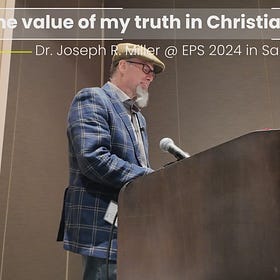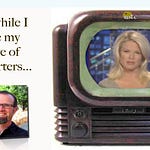In the full episode of the Truthful Hope Podcast, host Jacob Vazquez and I delve into the profound question of truth, exploring its definitions, implications, and the various worldviews that shape our understanding. We discuss the distinction between absolute and temporal truths, the challenges posed by different naturalistic worldviews. Our conversation emphasizes the importance of engaging with individuals' underlying beliefs and values (not just the labels) to foster meaningful dialogue about truth and morality.
Discussed in this Clip
Which philosophical challenge is currently most prevalent, especially for the next generation?
Relativism is identified as the most significant challenge, surpassing scientism, Marxism (politically, though influential in academia), and even postmodernism, which is a close second. Dr. Miller believes that scientism is not a "boots on the ground" issue for the current generation. Relativism, however, is particularly pervasive because it emphasizes individual feelings as the primary source of truth, leading to a "my truth" mentality.
Why is relativism considered more challenging than other worldviews?
The primary reason relativism is seen as the most challenging is not just its cultural persuasiveness but also what Dr. Miller identifies as a flawed apologetic response from Christians. The common Christian response of stating "there is no my truth or your truth, there's only the truth" is counterproductive because it dismisses subjective experiences and perceptions that can actually point towards objective truth.
Why is it problematic for Christians to deny the concept of "my truth" in their apologetics?
Denying "my truth" can unintentionally prevent people from accessing and experiencing the objective truth of the Gospel. When apologists tell people that their personal perceptions or feelings are "not real" or "false," they essentially invalidate the individual's entire way of perceiving the world. If someone is told that their feelings about love are not "real love," it becomes difficult to then convince them that their perceptions of Jesus or the Gospel are true. This approach alienates rather than engages, cutting people off from a relatable entry point to spiritual truth.
What is the desired apologetic approach to relativism?
Instead of outright denying "my truth," apologists should acknowledge and engage with people's subjective experiences and feelings. Following the lead of Francis Schaeffer, Dr. Miller suggests that these feelings, desires, and personal apprehensions of truth (like the longing for love or purpose) can serve as pathways or pointers to objective truth. By validating an individual's "my truth" as a personal apprehension, apologists can then guide the person to see how these subjective experiences are rooted in and correspond to a larger, objective reality, ultimately leading them to the objective truth of the Gospel.
The Value of My Truth in Christian Apologetics
In certain apologetic circles, it is common to hear the refrain, “there is no such thing as my truth or your truth but only the Truth.” This critique infers that all expressions of ‘my truth’ entail a denial of objective otruth. But, if ‘my truth’ does not logically deny objective truth, then this apologetic approach creates an unnecessary chasm between the Christian and non-Christian thinker. However, we can bridge this gap by using ‘my truth’ as an epistemic bridge to 'the Truth.' In support of this apologetic I offer three arguments.
About Jacob Vazquez
Jacob Vazquez is a Bioinformatics scientist and Christian apologist with his Master's in Science in Biotechnology with a specialization in Bioinformatics from the University of Maryland Global Campus and is completing his Master's of Arts in Christian Apologetics at Liberty University. He is also the founder of Truthful Hope, which is an apologetics ministry that seeks to provide strong reasons for trusting in the Christian hope, who is Jesus Christ (1 Peter 1:3). While he is a generalist when it comes to his apologetics, he tends to be extra passionate about issues in bioethics (such as abortion) and philosophy of mind (i.e., the existence of the soul).
About Truthful Hope
Truthful Hope is a nonprofit apologetics ministry that aims to provide strong reasons for having faith (trusting) in Christianity, which in turn serves as the foundation for being confident in the Christian hope. Our content covers a wide range of topics including; apologetics, philosophy, theology, and science to offer a deeper understanding of the truth of Christianity.












